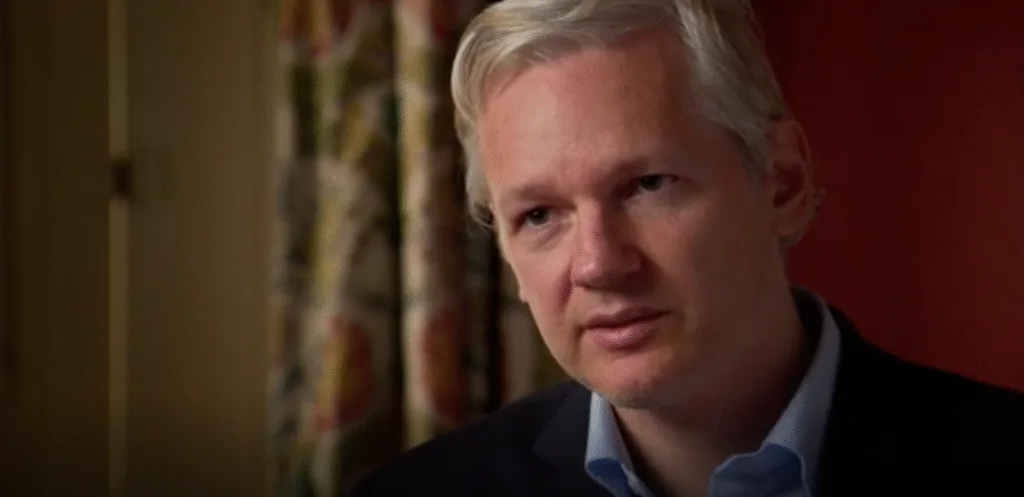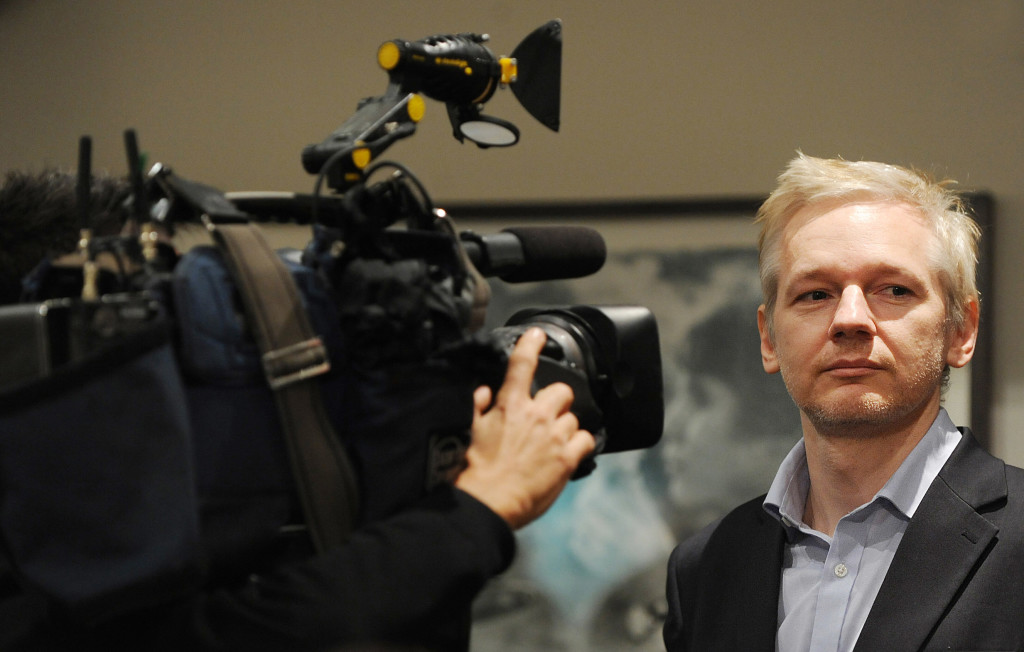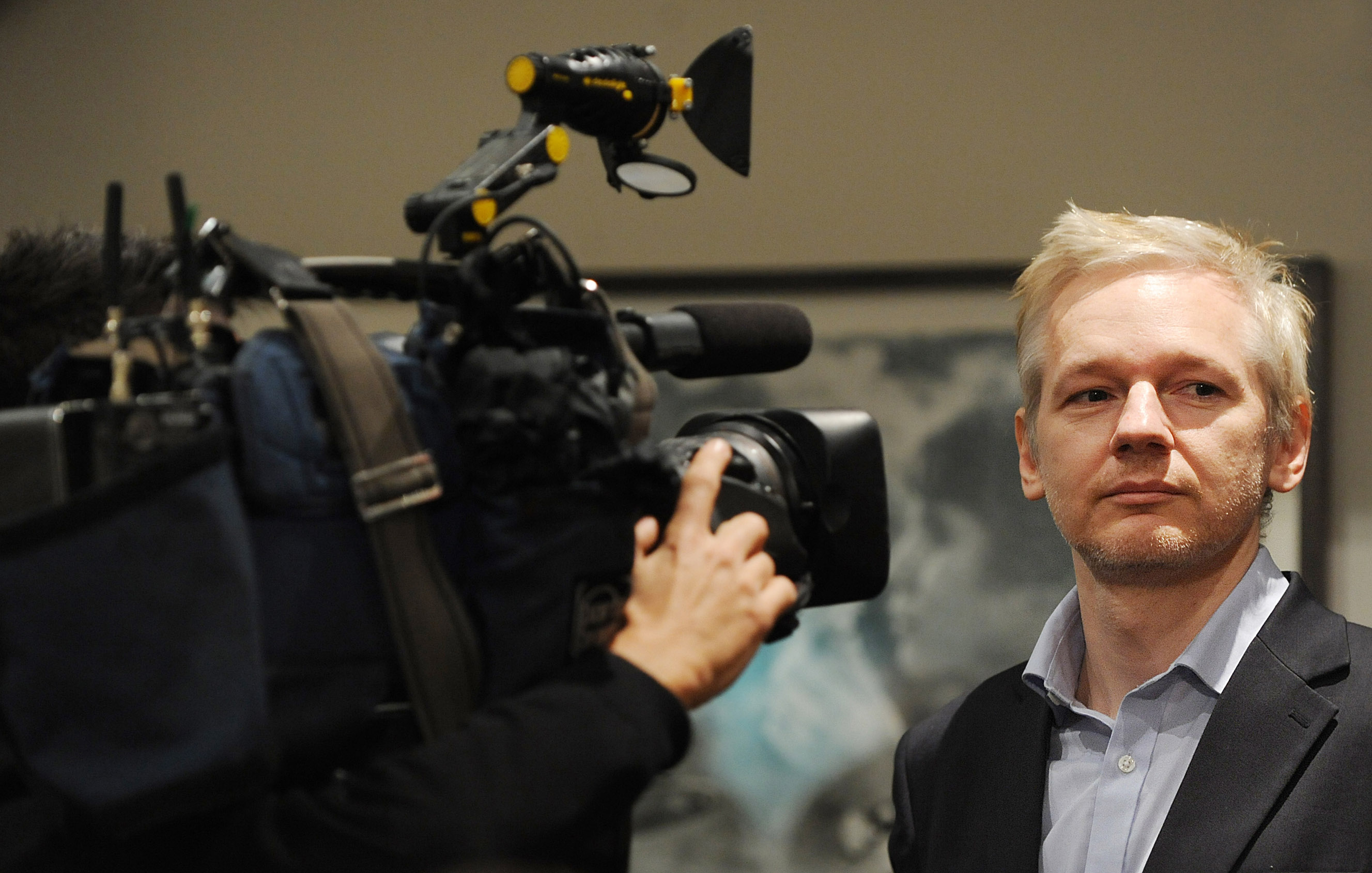WikiLeaks’ Julian Assange Arrested, Charged with Conspiracy

April 11, 2019
Share
It was March 8, 2010, right before Wikileaks founder Julian Assange would allegedly agree to help a U.S. Army intelligence analyst breach the security of government computers.
“After this upload, that’s all I really have got left,” the analyst said to Assange, prosecutors said.
“Curious eyes never run dry in my experience,” Assange replied.
What happened next was part of what the Justice Department described today as one of the biggest compromises of classified information in U.S. history.
Between January and May 2010, the former intelligence analyst, Chelsea Manning, downloaded hundreds of thousands of Department of State cables, activities reports relating to U.S. wars in Iraq and Afghanistan, and Guantanamo Bay detainee assessment briefs, according to a federal indictment unsealed this morning. And prosecutors said Assange encouraged and tried to help Manning.
Assange was arrested this morning at the Ecuadorian embassy in London on charges he had skipped bail, and further arrested “on behalf of” U.S. authorities on an extradition warrant.
In the 2011 documentary WikiSecrets, FRONTLINE went inside the saga of how more than a half-million secret government documents came into public view — and the debate over the public value of the information revealed versus the potential safety threats to informants or sources.
“It was a remarkable insight. I mean, it was an unvarnished, rich portrait of the daily conduct of two wars,” Dean Baquet, executive editor of The New York Times, told FRONTLINE in the film. “I would argue that you came away with stuff you didn’t get in the Pentagon Papers because of the — the rawness of the information, the sheer day-to-day mundane life of war.”
In the clip below, Assange defended his decision to publish the material in full.
Assange told FRONTLINE correspondent Martin Smith in an interview for the film that he had not been in direct contact with Manning. The WikiLeaks founder said he believed his work was protected by the First Amendment.
After Assange was taken into custody this morning, his lawyer, Jennifer Robinson warned that his arrest set a “dangerous precedent” for journalists. “This precedent means that any journalist can be extradited for prosecution in the United States for having published truthful information about the United States,” she said.
“That is absolutely not what the indictment is,” Mary McCord, a former senior Justice Department official, told FRONTLINE on Thursday. “Nothing about this indictment is charging him with publishing truthful information.”
McCord, now a senior litigator and Georgetown Law School professor, added: “This is no different to me than the journalist conspiring to physically break into an office and into a secured filing cabinet to steal the national defense information. It’s just [that] it was done in the cyber arena.
“My point is, it’s just a regular crime that you shouldn’t get a pass for because you’re a member of the media.”
Footage of the arrest shows Assange, now with a bushy white beard, surrounded and being ushered along, wagging his finger and holding a copy of Gore Vidal’s History of the National Security State, as he is escorted by into an awaiting van.
Assange had been staying at the Ecuadorian embassy since 2012, but the country’s government had retracted its offer of asylum.
“Today I announce that the discourteous and aggressive behavior of Mr. Julian Assange, the hostile and threatening declarations of its allied organization, against Ecuador, and especially, the transgression of international treaties, have led the situation to a point where the asylum of Mr. Assange is unsustainable and no longer viable,” Ecuadorian President Lenin Moreno said in a video released today.
Assange faces one count of conspiracy to commit computer intrusion, which carries a maximum sentence of five years in jail, according to the Justice Department. His indictment said his case will proceed in Virginia.
In addition to the U.S. charges, Assange had previously been accused of rape in Sweden, and now the accuser’s lawyer is calling for the case to be re-examined as well.
—Patrice Taddonio contributed to this story.
Related Documentaries
Latest Documentaries
Related Stories
Related Stories
Explore
Policies
Teacher Center
Funding for FRONTLINE is provided through the support of PBS viewers and by the Corporation for Public Broadcasting, with major support from Ford Foundation. Additional funding is provided the Abrams Foundation, Park Foundation, John D. and Catherine T. MacArthur Foundation, Heising-Simons Foundation, and the FRONTLINE Trust, with major support from Jon and Jo Ann Hagler on behalf of the Jon L. Hagler Foundation, and additional support from Koo and Patricia Yuen. FRONTLINE is a registered trademark of WGBH Educational Foundation. Web Site Copyright ©1995-2025 WGBH Educational Foundation. PBS is a 501(c)(3) not-for-profit organization.





















